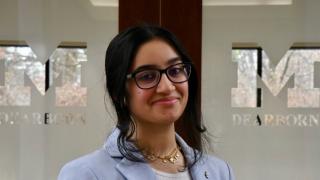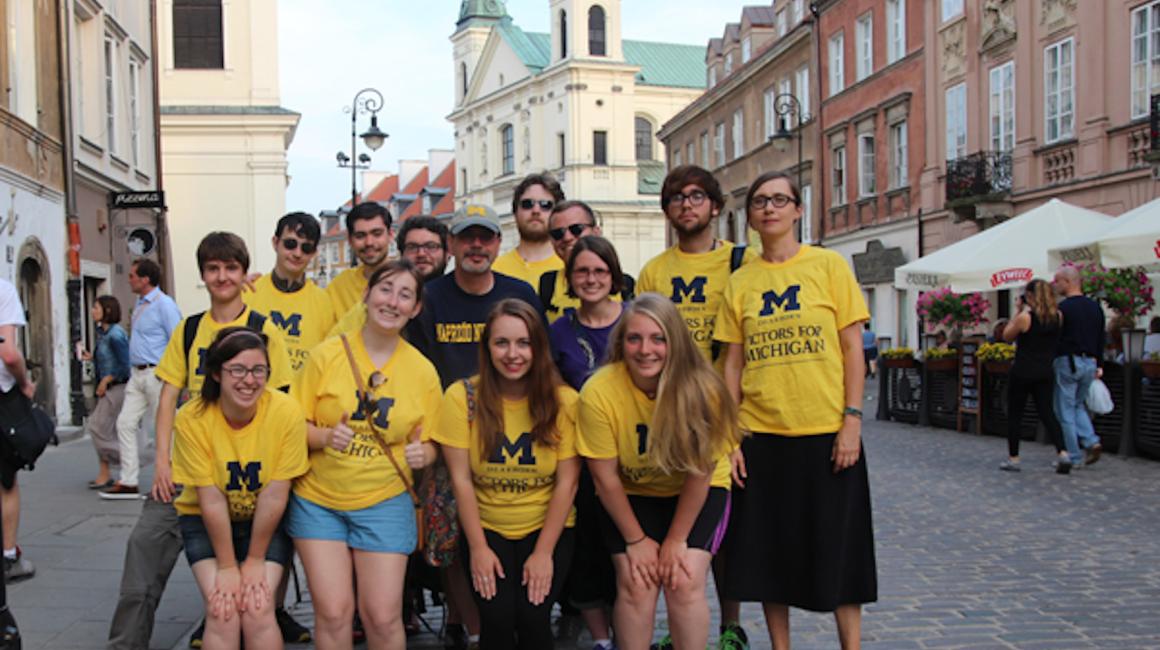
This article was originally published on January 23, 2020.
Katrina Finkelstein studied concentration camp architecture and its evolution during World War II during her classes. But reading about a place and experiencing it are two different things, she said.
“I was walking on the ashes of more than a million people,” said Finkelstein who went to Poland and visited Auschwitz-Birkenau during a study abroad course. “The books I read and the photos I saw in my studies were important, but being there completely changed my life. I will never forget it.”

Now working as an events associate at the Holocaust Memorial Center, the 2016 graduate said she’d encourage students to seek out Study Abroad experiences because it may do the same for them.
“Visiting a place makes everything very real in a way a standard lecture cannot,” said Finkelstein, who went to Poland in 2015, the first year the program was offered. “My friend circle grew from the experience too. Bonds are created when you experience emotional ups and downs and you share those with others. People I met during the trip were later in my wedding.”
History Professor Anna Muller said the Poland Study Abroad Finkelstein attended is expanding this year to include Germany. And instead of having a sole focus on history, the experience will also look at urban spaces and how they have evolved to help communities heal from trauma. Sociology Professor Paul Draus is co-leading the Study Abroad. Applications for the program are currently being accepted.
Muller said learning in another country — or two in this case — gives hands-on, place-based experiential learning, where the historical, social and physical context are the primary teachers.
“Everything that will surround us in Poland and Berlin will be a source of knowledge and reflection: architectural styles, cultural artifacts, and living social spaces as well as our meetings with guides who will be historians, community residents and activists,” she said. “You’ll learn about different social and cultural norms, about the causes and consequences of social change, and finally about yourself in a new situation.”
In 2020, faculty-led study abroad experiences are in seven locations — Canada, the Caribbean, France, Germany, Italy, Poland and Spain.
And to help get students there, the campus started a Go Global Guarantee — which grants $500 to all students in good standing who register for a faculty-led study abroad course or participate in select exchange programs on MNavigator. There’s also additional central financial aid available, which ranges from $500 to $2000 per student and is determined by a variety of factors, which includes financial need and trip costs.
Still interested? Here’s what you need to know.
Canada. Led by Lecturer Sheryl Edwards, the Ottawa Internship Program is a first-hand learning experience in Canadian government through placement with a Member of Parliament or Senator in Ottawa, the capital of Canada. It’s for five weeks over the summer semester and you earn 3-6 credits in political science. And yes, participants have even met Prime Minister Justin Trudeau. Apply by Jan. 31.
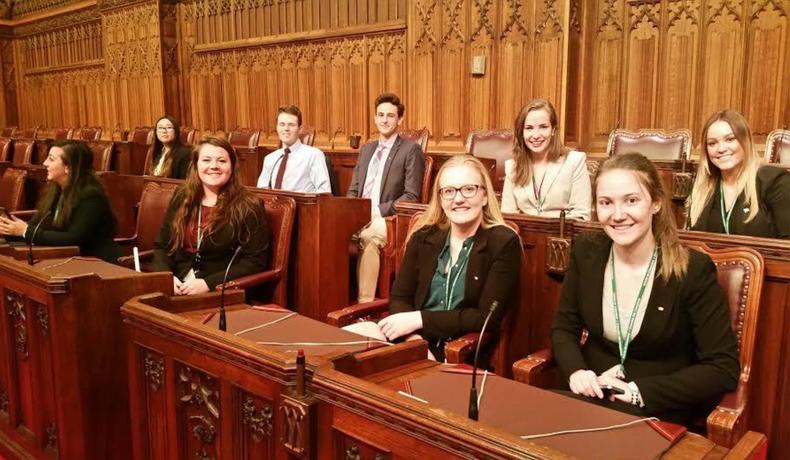
France. Students, led by Professor Gabriella Scarlatta and Lecturer Jerilyn Mannion, will travel nearly 500 miles by bus with local tour guides through the French landscape in this one-credit study abroad program. Students will peruse the art at the Louvre in Paris, visit the lush Loire Valley and stop to see Château de Chambord, built for King Francis I. Dates for the course, French 340, are April 22 to May 1. Apply by Feb. 1.
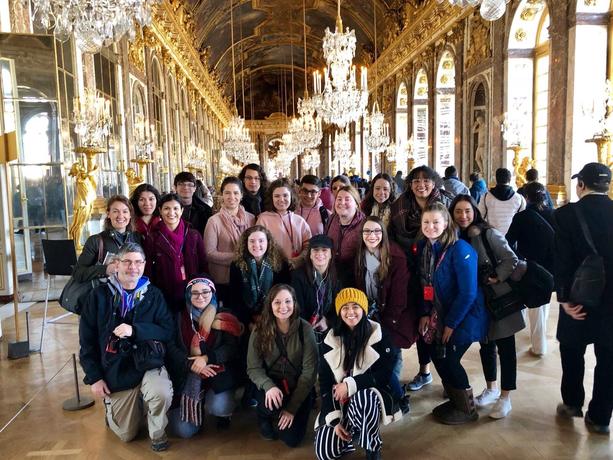
Germany/Poland. History Associate Professor Anna Muller and Sociology Professor Paul Draus will take students on a nearly month-long Study Abroad experience, May 26 to June 23, in Poland and Germany. Starting in Poland, Muller will lead students to sites that include Jewish war ghettos, concentration camps and the Jewish Historical Institute. There will also be opportunities to see a concert at the Chopin Museum and a guided tour at Morbark Castle. In Berlin, Draus will explore changes in the landscape through time — for example, there is a bike trail that traces the path of the former Berlin Wall- — as well as the city’s contemporary social dynamics. The experience is linked with HIST 3122. Apply by April 30.
Montserrat, Caribbean. The one-credit experience (either GEOL 377 or GEOL 577) with Professor Jacob Napieralski looks at geology and environment in a tropical location and allows students to learn about the hazards of living on a volcanically active island. There will be rainforest hiking and exploring of the coral reefs. This program is full. To learn about future geology-based study abroad programs, contact Napieralski.
Italy. Take business courses at the University of Padua in Italy. Led by Lecturer Chris Samfilippo, students have the option of two courses offered (students can take one or both): A marketing course or an organizational behavior one. Students will interact with local college students and will go on guided site excursions. Program dates are May 4 to June 4. Application deadline is Jan. 31.
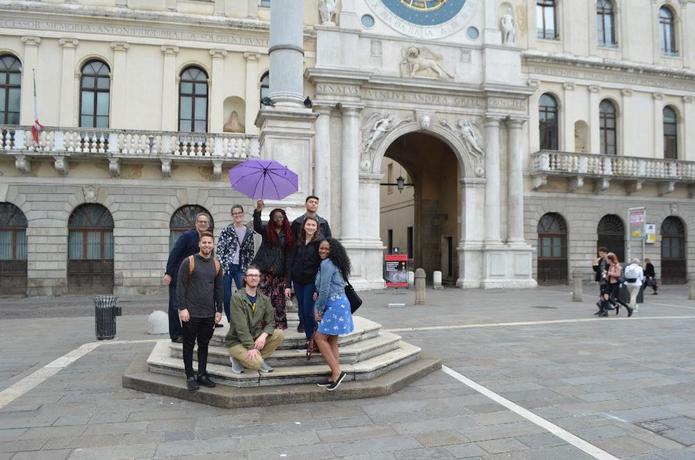
Spain. The week-long Fall 2020 Study Abroad experience, led by Professor Jorge Gonzalez del Pozo and Associate Professor Imran Aijaz, explores different cultural eras of Spain by examining architecture and learning more about the country’s scientific advances. The one-credit experience is connected with SPN 359. Dates are Nov. 21 through 28. Apply by April 30.
Director of Global Engagement Scott Riggs said creating a more diverse offering of Study Abroad experiences is a campus priority. Riggs said both research-based and anecdotal evidence shows the connection between intercultural learning and positive outcomes like student success and higher retention rates.
“The effects are wide ranging and long lasting for students who have a study abroad experience,” he said. “The effects of globalization will have a significant impact on our students. And intercultural learning is important in better understanding the issues we all are facing, seeing the world differently and thinking critically. You learn about value systems, you question things, you learn about yourself, you grow.”
If you have additional questions about Study Abroad or the MNavigator system, please contact Riggs.

